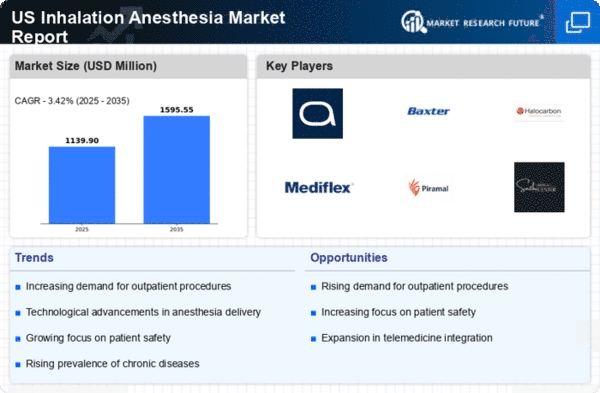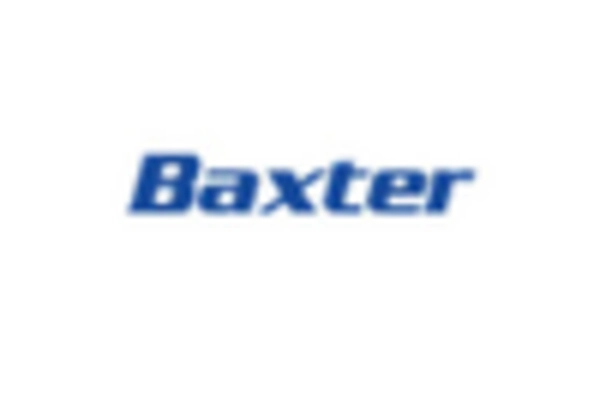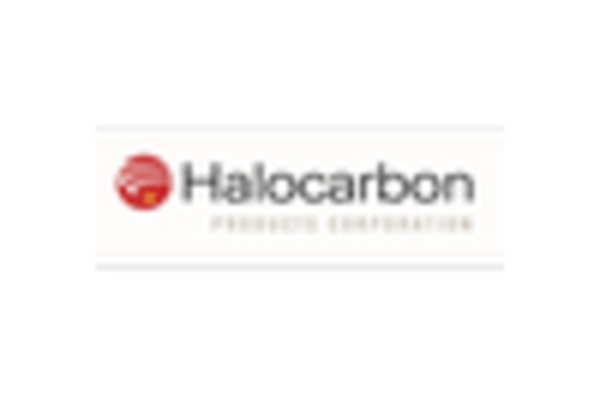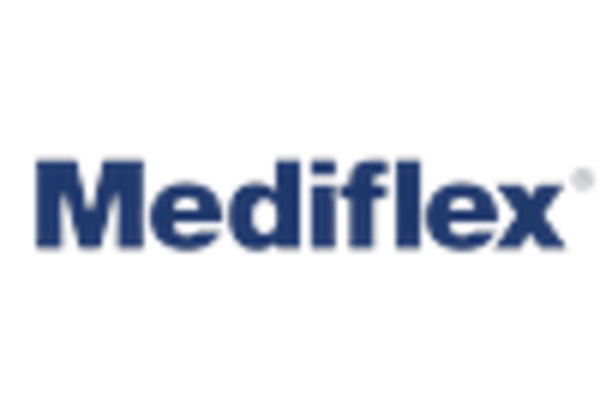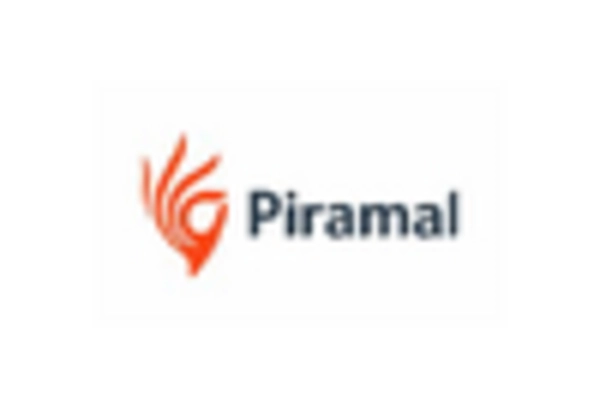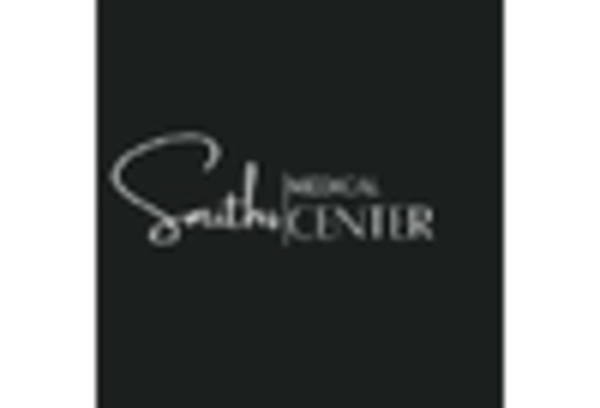Increased Focus on Patient Safety
The inhalation anesthesia market is increasingly influenced by a heightened focus on patient safety and quality of care. Regulatory bodies and healthcare organizations are emphasizing the importance of minimizing risks associated with anesthesia administration. This focus has led to the development of stringent guidelines and protocols aimed at ensuring the safe use of inhalation anesthetics. Hospitals and surgical centers are investing in training programs for anesthesiologists and support staff to enhance their skills in managing anesthesia-related complications. As a result, the inhalation anesthesia market is likely to experience growth as facilities adopt safer practices and technologies, ultimately improving patient outcomes and satisfaction. This trend may also lead to a shift in market dynamics, with a growing preference for inhalation anesthetics that have a favorable safety profile.
Rising Demand for Anesthesia Services
The inhalation anesthesia market experiences a notable increase in demand for anesthesia services, driven by the growing number of surgical procedures performed annually. In the US, the volume of surgeries has been on an upward trajectory, with estimates suggesting that over 50 million surgical procedures are conducted each year. This surge in surgical activity necessitates the use of inhalation anesthesia, as it is often preferred for its rapid onset and ease of administration. Furthermore, the aging population, which is more susceptible to surgical interventions, contributes to this demand. As healthcare providers seek to enhance patient outcomes, the inhalation anesthesia market is poised to benefit from this trend, as more facilities invest in advanced anesthesia technologies to meet the increasing needs of patients.
Expansion of Ambulatory Surgery Centers
The rise of ambulatory surgery centers (ASCs) is a significant driver for the inhalation anesthesia market. ASCs offer a cost-effective alternative to traditional hospital settings for various surgical procedures, leading to an increase in outpatient surgeries. This trend is particularly relevant in the US, where the number of ASCs has been steadily increasing, with estimates indicating that there are over 5,000 such centers nationwide. The convenience and efficiency of ASCs often result in shorter recovery times for patients, making inhalation anesthesia an attractive option for these facilities. As ASCs continue to expand, the inhalation anesthesia market is likely to benefit from the growing demand for outpatient surgical services, further solidifying the role of inhalation anesthetics in modern surgical practices.
Growing Awareness of Anesthesia Options
There is a growing awareness among patients and healthcare providers regarding the various anesthesia options available, which is positively impacting the inhalation anesthesia market. Patients are increasingly informed about the benefits and risks associated with different anesthetic techniques, leading to more informed decision-making. This trend is particularly evident in elective surgeries, where patients often discuss anesthesia options with their healthcare providers. As a result, anesthesiologists are more frequently recommending inhalation anesthesia due to its rapid recovery profile and ease of use. The inhalation anesthesia market is likely to see a shift in preferences as patients advocate for their choices, prompting healthcare providers to align their practices with patient expectations and preferences.
Advancements in Anesthesia Delivery Systems
Innovations in anesthesia delivery systems are significantly impacting the inhalation anesthesia market. The introduction of sophisticated devices, such as electronic vaporization systems and automated anesthesia machines, enhances the precision and safety of inhalation anesthesia administration. These advancements not only improve patient safety but also streamline the workflow for anesthesiologists. For instance, the integration of real-time monitoring systems allows for better management of anesthetic levels, reducing the risk of complications. The inhalation anesthesia market is likely to see increased adoption of these technologies, as healthcare facilities prioritize patient safety and operational efficiency. As a result, the market may witness a compound annual growth rate (CAGR) of approximately 6% over the next few years, reflecting the growing reliance on advanced anesthesia delivery systems.


